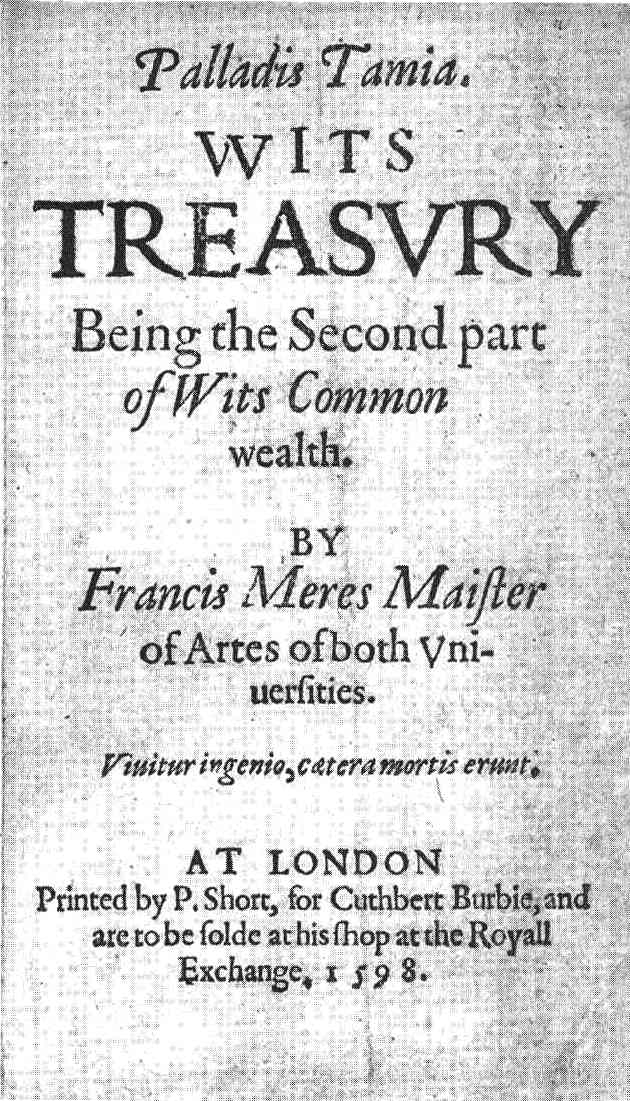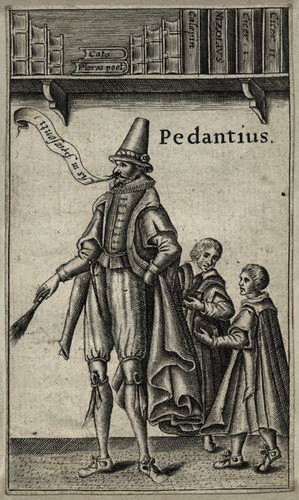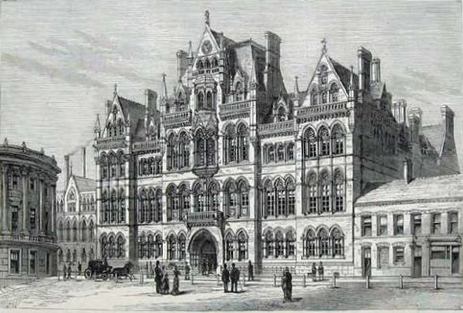|
Palladis Tamia
''Palladis Tamia: Wits Treasury; Being the Second Part of Wits Commonwealth'' is a 1598 book written by the minister Francis Meres. It is important in English literary history as the first critical account of the poems and early plays of William Shakespeare. It was listed in the Stationers Register 7 September 1598. ''Palladis Tamia'' contains moral and critical reflections borrowed from various sources, and included sections on books, on philosophy, on music and painting, as well as the famous "Comparative Discourse of our English poets with the Greeke, Latin, and Italian poets" that enumerates the English poets from Geoffrey Chaucer to Meres' own day, and compares each with a classical author. While Meres is considerably indebted to George Puttenham's earlier ''The Arte of English Poesie'' (1589), the section extends the catalogue of poets and contains many first notices of Meres's contemporaries. The title refers to Greek Πᾰλλᾰ́δος (''Pallados'', "of Pallas," a ... [...More Info...] [...Related Items...] OR: [Wikipedia] [Google] [Baidu] |
Palladis Tamia 1598
''Palladis Tamia: Wits Treasury; Being the Second Part of Wits Commonwealth'' is a 1598 book written by the minister Francis Meres. It is important in English literary history as the first critical account of the poems and early plays of William Shakespeare. It was listed in the Stationers Register 7 September 1598. ''Palladis Tamia'' contains moral and critical reflections borrowed from various sources, and included sections on books, on philosophy, on music and painting, as well as the famous "Comparative Discourse of our English poets with the Greeke, Latin, and Italian poets" that enumerates the English poets from Geoffrey Chaucer to Meres' own day, and compares each with a classical author. While Meres is considerably indebted to George Puttenham's earlier ''The Arte of English Poesie'' (1589), the section extends the catalogue of poets and contains many first notices of Meres's contemporaries. The title refers to Greek Πᾰλλᾰ́δος (''Pallados'', "of Pallas," a ... [...More Info...] [...Related Items...] OR: [Wikipedia] [Google] [Baidu] |
George Gregory Smith
Prof George Gregory Smith (20 June 1865 – 3 March 1932) was a Scottish literary critic. He corresponded with Mark Twain, and also lived in Florence for a while. He died in London but is buried with his wife Mary east of the western path in Dean Cemetery in Edinburgh Edinburgh ( ; gd, Dùn Èideann ) is the capital city of Scotland and one of its 32 council areas. Historically part of the county of Midlothian (interchangeably Edinburghshire before 1921), it is located in Lothian on the southern shore of t .... Family He was married to Mary Cadell (1866-1909) daughter of Col Robert Cadell. Selected works *'' The Days of James IV'' (1890) *The Transition Period' (1900) *Specimens of Middle Scots' (1902) * ''Elizabethan Critical Essays,'vol. Ivol. II(1904, editor) * Scottish Literature: Character & Influence' (1919). References * Author and Bookinfo.com External links * Scottish literary critics 1865 births 1932 deaths {{Scotland-academic-bio-stub ... [...More Info...] [...Related Items...] OR: [Wikipedia] [Google] [Baidu] |
John Cotgrave
John Cotgrave (1611 - ?) was an English anthologist whose works included ''Wit's Interpreter'', notable for containing the earliest detailed descriptions of card games in English. at parlettgames.uk. Retrieved 14 December 2021. Works The following works by John Cotgrave are recorded: * ''The Covrt Mercurie'' (1644). Journal. London: Tho. Forrest. * ''Le Mercure Anglois'' (1644–1648). Journal. London: Robert White (in French). * ''The English treasury of wit and language'' (1655) London: Humphrey Moseley. * ''Wits interpreter, the English Parnassvs'', 1st edn. (1655) London: N. Brooke. * ''The Muses Mistresse, or A Store-House of Rich Fancies'' (1660), London. * ''Wits interpreter, the English Parnassvs'', 2nd edn. (1662) London: N. Brook. * ''Wits interpreter, the English Parnassvs'', 3rd edn. (1671) London: N. Brook. |
1598 In Poetry
Nationality words link to articles with information on the nation's poetry or literature (for instance, Irish or France). Events Works published England *Richard Barnfield: ** ''The Encomium of Lady Pecunia; or, The Praise of Money''Cox, Michael, editor, ''The Concise Oxford Chronology of English Literature'', Oxford University Press, 2004, ** ''Poems in Divers Humours'' Lucie-Smith, Edward, ''Penguin Book of Elizabethan Verse'', 1965, Harmondsworth, Middlesex, United Kingdom: Penguin Books * Nicholas Breton, ''A Solemne Passion of the Soules Love'' * Richard Carew, published anonymously, ''A Herrings Tale'' * George Chapman: ** ''Seven Bookes of the Iliades of Homere, Prince of Poets'', contains books 1–2, 7–9 (see also ''Achilles Shield'' 1598, ''Homer Prince of Poets'' 1609, ''The Iliads of Homer'' 1611, ''Homers Odysses'' 1614, ''Twenty-four Bookes of Homers Odisses'' 1615, ''The Whole Workes of Homer'' 1616) ** ''Achilles Shield'' * Thomas Churchyard, ''A Wish ... [...More Info...] [...Related Items...] OR: [Wikipedia] [Google] [Baidu] |
Nicholas Ling
Nicholas Ling (fl.1570–1607) was a London publisher, bookseller, and editor who published several important Elizabethan works, including the first and second quartos of Shakespeare's ''Hamlet''. Ling was the son of John Lynge, a parchment maker from Norwich. He was apprenticed to Henry Bitteman in 1570 and was admitted to the Stationers' Company as a "freeman" (full member) in 1578. He generally partnered with other publishers. In 1597 he edited ''Politeuphuia, or Wits Commonwealth'', a collection of prose quotations. He has also been credited by some critics with editing ''England's Helicon'' (1600), a collection of Elizabethan lyric poems. In 1603 he collaborated with another bookseller, John Trundell, to publish the first quarto of ''Hamlet''. This edition, printed by Valentine Simmes, has been widely condemned as a wildly inaccurate and badly printed travesty of the play. A few months later James Roberts printed the much more substantial and accurate second quarto accord ... [...More Info...] [...Related Items...] OR: [Wikipedia] [Google] [Baidu] |
John Bodenham
John Bodenham (c. 1559–1610), an English anthologist In book publishing, an anthology is a collection of literary works chosen by the compiler; it may be a collection of plays, poems, short stories, songs or excerpts by different authors. In genre fiction, the term ''anthology'' typically catego ..., was the patron of some of the Elizabethan poetry anthologies. Life Bodenham was the eldest of the five children of William Bodnam, a London grocer, and Katherine Wanton of York. He was educated at Merchant Taylors' School. According to Arthur Henry Bullen in the ''Dictionary of National Biography'', Bodenham did not himself edit any of the Elizabethan miscellanies attributed to him by bibliographers. He simply projected the publication of them and befriended their editors. Works *'' Politeuphuia'' ('' Wits' Commonwealth'') (1597) *'' Wits' Theater'' (1598) *'' Belvidere, or the Garden of the Muses'' (1600) *'' England's Helicon'' (1600). This "prints for the first time hri ... [...More Info...] [...Related Items...] OR: [Wikipedia] [Google] [Baidu] |
Leslie Hotson
John Leslie Hotson, (16 August 1897 – 16 November 1992) was a scholar of Elizabethan literary puzzles. Biography He was born at Delhi, Ontario, on 16 August 1897. He studied at Harvard University, where he obtained a B.A., M.A. and Ph.D. He went on to hold a number of academic posts. Hotson was known for his tenacious archival research and his interest in coded information. He had a number of notable successes, but not all of his "decodings" have been accepted by other scholars. He discovered the identity of Ingram Frizer, the killer of Christopher Marlowe, and reconstructed the shape of the original Shakespearean theater. He also unearthed the letters that Percy Bysshe Shelley wrote to his divorced wife Harriet; produced evidence of Shakespeare's father as a wool dealer; illuminated Shakespeare's early years in Stratford-upon-Avon; and identified John Day as the killer of Henry Porter, a minor Elizabethan dramatist. Some of his solutions to literary puzzles are still in dis ... [...More Info...] [...Related Items...] OR: [Wikipedia] [Google] [Baidu] |
Thomas Beard
Thomas Beard (died 1632) was an English clergyman and theologian, of Puritan views. He is known as the author of ''The Theatre of Gods Judgements'', and the schoolmaster of Oliver Cromwell at Huntingdon. Life He was, it is believed, a native of Huntingdon, but the date of his birth is unknown. He received his education at Jesus College, Cambridge, where he was a sizar and matriculated in 1584. He graduated B.A. in 1588, M.A. in 1591, B.D. in 1602 and D.D. in 1614. He became rector of Kimbolton in 1595. On 21 January 1598 he was collated to the rectory of Hengrave, Suffolk, which he held for a very short time, moving as rector to Aythorpe Roding, Essex, later in the year. In 1605, Beard became master of Huntingdon hospital and grammar school, where he remained for twenty years. It was at this school that Cromwell was educated from around 1604, and was prepared for entrance to Cambridge; he acted in Beard's school plays, and Beard became a friend of the Cromwell family. In March 16 ... [...More Info...] [...Related Items...] OR: [Wikipedia] [Google] [Baidu] |
Christopher Marlowe
Christopher Marlowe, also known as Kit Marlowe (; baptised 26 February 156430 May 1593), was an English playwright, poet and translator of the Elizabethan era. Marlowe is among the most famous of the Elizabethan playwrights. Based upon the "many imitations" of his play '' Tamburlaine,'' modern scholars consider him to have been the foremost dramatist in London in the years just before his mysterious early death. Some scholars also believe that he greatly influenced William Shakespeare, who was baptised in the same year as Marlowe and later succeeded him as the pre-eminent Elizabethan playwright. Marlowe was the first to achieve critical reputation for his use of blank verse, which became the standard for the era. His plays are distinguished by their overreaching protagonists. Themes found within Marlowe's literary works have been noted as humanistic with realistic emotions, which some scholars find difficult to reconcile with Marlowe's "anti-intellectualism" and his c ... [...More Info...] [...Related Items...] OR: [Wikipedia] [Google] [Baidu] |
Palladis Tamia, Wits Treasury Francis Meres Love Labours Won Excerpt 1598
''Palladis Tamia: Wits Treasury; Being the Second Part of Wits Commonwealth'' is a 1598 book written by the minister Francis Meres. It is important in English literary history as the first critical account of the poems and early plays of William Shakespeare. It was listed in the Stationers Register 7 September 1598. ''Palladis Tamia'' contains moral and critical reflections borrowed from various sources, and included sections on books, on philosophy, on music and painting, as well as the famous "Comparative Discourse of our English poets with the Greeke, Latin, and Italian poets" that enumerates the English poets from Geoffrey Chaucer to Meres' own day, and compares each with a classical author. While Meres is considerably indebted to George Puttenham's earlier ''The Arte of English Poesie'' (1589), the section extends the catalogue of poets and contains many first notices of Meres's contemporaries. The title refers to Greek Πᾰλλᾰ́δος (''Pallados'', "of Pallas," a ... [...More Info...] [...Related Items...] OR: [Wikipedia] [Google] [Baidu] |
Edward Arber
Edward Arber (4 December 183623 November 1912) was an English scholar, writer, and editor. Background and professional work Arber was born in London. From 1854 he 1878 he worked as a clerk in the Admiralty, and began evening classes at King's College London in 1858. From 1878 to 1881 he studied English literature, under Henry Morley, at University College London; and from 1881 to 1894 he was professor of English at Mason College (which later became Birmingham University). From 1894 he lived in London as emeritus professor, being also a fellow of King's College London. In 1905 he received the honorary degree of D. Litt. from the University of Oxford. He married in 1869, and had two sons, one of whom, E. A. N. Arber, became demonstrator in palaeobotany at the University of Cambridge. Scholarly edits As a scholarly editor, Arber made notable contributions to English literature. His name is associated particularly with the series of " English Reprints" (1868–1871), by which ... [...More Info...] [...Related Items...] OR: [Wikipedia] [Google] [Baidu] |
Francis Meres
Francis Meres (1565/1566 – 29 January 1647) was an English churchman and author. His 1598 commonplace book includes the first critical account of poems and plays by Shakespeare. Career Francis Meres was born in 1565 at Kirton Meres in the parish of Kirton, Lincolnshire. He was educated at Pembroke College, Cambridge, where he received a BA in 1587 and an MA in 1591. Two years later he was incorporated an MA of Oxford. His relative, John Meres, was high sheriff of Lincolnshire in 1596, and apparently helped him in the early part of his career. In 1602 he became rector of Wing, Rutland, where he also ran a school. Both his son Francis and his grandson Edward received their BA and MA from Cambridge and became rectors. Meres is especially known for his '' Palladis Tamia, Wits Treasury'' (1598), a commonplace book that is important as a source on the Elizabethan poets, and more particularly as the first critical account of the poems and early plays of William Shakespeare. Its list ... [...More Info...] [...Related Items...] OR: [Wikipedia] [Google] [Baidu] |




